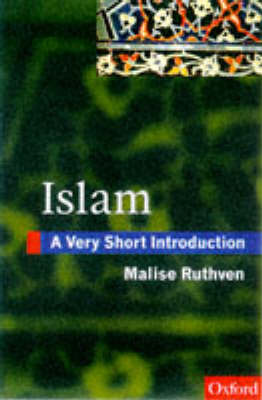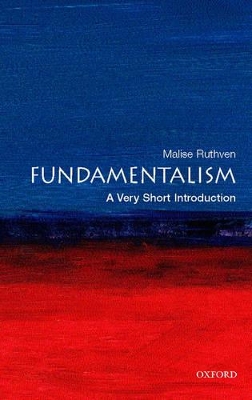Very Short Introductions
2 total works
Islam features widely in the media, often in its most militant versions, but few people in the non-Muslim world really understand the nature of Islam, both as ideology and religion. This short introduction offers an insight into issues such as why the greatest "Jihad" (holy war) is now against the enemies of Islam, rather than the struggle against evil, why Islam has such major divisions between movements such as the Shi'ites, the Sunnis, and the Wahhabis, and how the Shar'ia (Islamic law) has become such an important aspect of Islamic life. In addition the study investigates the ideas of "Islamic resurgence" as both an old and new concept, whether or not women can find fulfilment and equality within an Islamic framework, and the problems facing Islam in its confrontations with the modern world.
Malise Ruthven tackles the polemic and stereotypes surrounding this complex phenomenon - one that eludes sim today, a conclusion impossible to ignore since the events in New York on September 11 2001. But what does 'fundamentalism' really mean?
Since it was coined by American Protestant evangelicals in the 1920s, the use of the term 'fundamentalist' has expanded to include a diverse range of radical conservatives and ideological purists, not all religious. Fundamentalism could now mean both militant Israeli settlers as well as the Islamist radicals who oppose them, it can mean Christians, Hindus, animal liberationists, and even Buddhist nationalists. Ruthven investigates fundamentalism's historical, social, religious, political, and
ideological roots, and tackles the polemic and stereotypes surrounding this complex phenomenon - one that eludes simple definition, yet urgently needs to be understood.
ABOUT THE SERIES: The Very Short Introductions series from Oxford University Press contains hundreds of titles in almost every subject area. These pocket-sized books are the perfect way to get ahead in a new subject quickly. Our expert authors combine facts, analysis, perspective, new ideas, and enthusiasm to make interesting and challenging topics highly readable.
Since it was coined by American Protestant evangelicals in the 1920s, the use of the term 'fundamentalist' has expanded to include a diverse range of radical conservatives and ideological purists, not all religious. Fundamentalism could now mean both militant Israeli settlers as well as the Islamist radicals who oppose them, it can mean Christians, Hindus, animal liberationists, and even Buddhist nationalists. Ruthven investigates fundamentalism's historical, social, religious, political, and
ideological roots, and tackles the polemic and stereotypes surrounding this complex phenomenon - one that eludes simple definition, yet urgently needs to be understood.
ABOUT THE SERIES: The Very Short Introductions series from Oxford University Press contains hundreds of titles in almost every subject area. These pocket-sized books are the perfect way to get ahead in a new subject quickly. Our expert authors combine facts, analysis, perspective, new ideas, and enthusiasm to make interesting and challenging topics highly readable.

